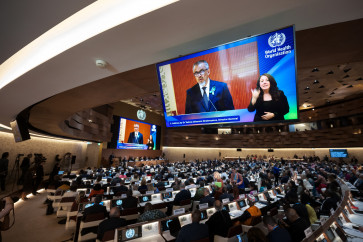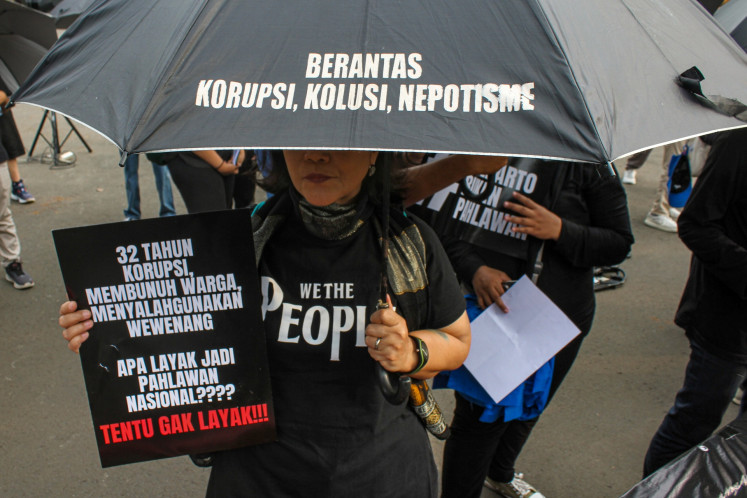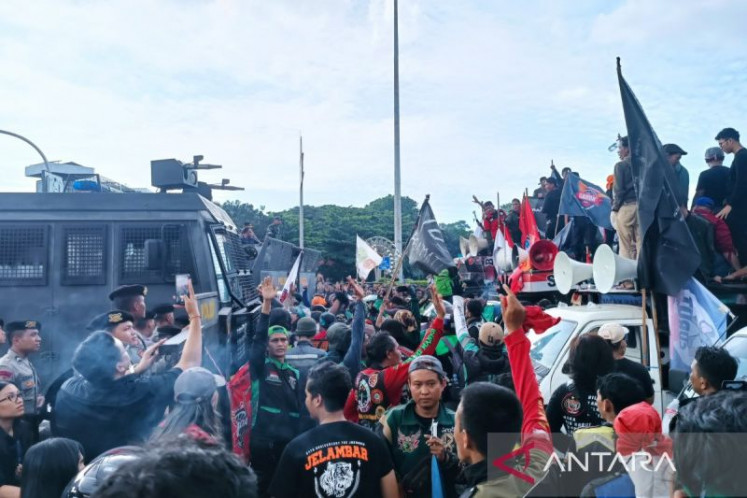Native-faith followers survive decades of discrimination
“We Sunda Wiwitan followers don’t want to set up an organization
Change text size
Gift Premium Articles
to Anyone

“We Sunda Wiwitan followers don’t want to set up an organization. Our faith existed long before the major religions,” Dede Rukmana, 36, said.
Dede’s faith, Sunda Wiwitan, is a traditional belief system of the Sundanese believed to have existed in the region since time immemorial. It precedes Islam and Hinduism, which was professed by early kingdoms in the archipelago.
Dede said Sunda Wiwitan followers decided not to set up an organization because they believed that an organization could easily be disbanded or banned by the government. Sunda Wiwitan could never be disbanded, he said.
However, that philosophy has come with a price.
Dede, a farmer in Garut, West Java, has retained his traditional beliefs despite facing decades of discrimination for refusing to subscribe to any of the six major religions officially recognized by the state: Islam, Catholicism, Protestantism, Hinduism, Buddhism and Confucianism.
Dede, for instance, does not have a marriage license after 11 years of being married. “To get a marriage license, you have to be part of a religious organization. Other native faiths have set up an organization. Sunda Wiwitan followers have not.”
His eldest son was nearly not admitted to school because his family card did not state the religion of family members. Under the 2006 Civic Administration Law, the religion column of native-faith followers should be left blank.
This policy was declared unconstitutional by the Constitutional Court last week.
Dede said he welcomed the ruling, however quickly added that the problem facing native-faith followers was bigger than administrative issues.
His son, for example, is always asked which religion test he wants to take. He was usually asked to choose between Islam or Christianity after being told that he should bring his own question sheets to test his knowledge about his own faith.
Native faiths are managed by the Education and Culture Ministry as the Religious Affairs Ministry has refused to recognize them as religions.
According to the West Java Population and Civil Registration Agency (Dukcapil), as of 2016, the followers of Sunda Wiwitan reached 100,000 people, spread across the province, including in Garut, Sukabumi, Cirebon and Bogor. The center of the activities is in Cigugur, Kuningan.
Meanwhile, Education and Culture Ministry data said 187 native faith organizations from 13 provinces were registered with the ministry. The data also said there were 12 million followers of native faiths.
Besides Sunda Wiwitan, other native faiths with a significant number followers include Parmalim, the native faith of Batak communities originating from Hutatinggi in North Sumatra, where the followers reportedly face difficulties in getting jobs on account of their beliefs.
Another native faith is Marapu from East Nusa Tenggara (NTT). In 2014, East Sumba regency listed 22,315 Marapu followers in the regency out of the total population of 242,886 people. The regency’s high official previously said Marapu had existed for centuries before the country was even established, and that it was the main belief system in the province before Christianity was introduced in the colonial era.
The lack of recognition of their faith by the local, regional and national governments leaves the Marapu followers vulnerable, not only to proselytizing but also to the gaps in the country’s legal system that does not recognize their faith as a formal religion.
The unregistered marriages of the Marapu people resulted in the government denying them of family ID cards and their children are without birth certificates.









